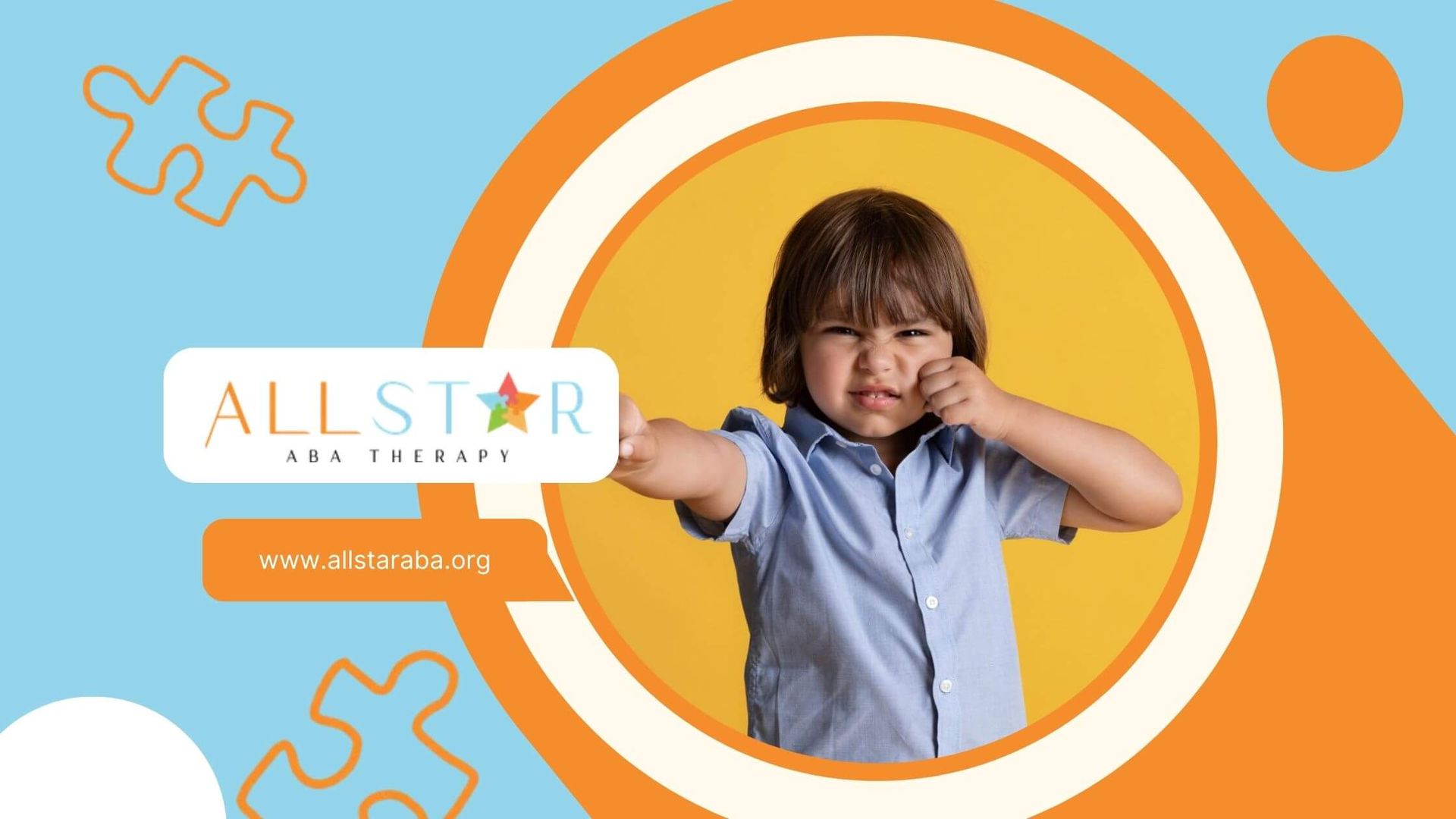New Paragraph
Sociopath vs Autism Similarities and Differences Explored
It's not uncommon for people to confuse the traits of sociopathy and autism. On the surface, challenges in social interaction can look similar, but their origins and intentions are vastly different. Sociopathy, clinically known as antisocial personality disorder, and autism spectrum disorder are distinct conditions. Understanding their key differences is crucial for offering the right support and fostering greater awareness. This guide will explore the unique characteristics of each, helping you distinguish between them.
Overview of Sociopathy and Autism
Sociopathy is a personality disorder defined by a long-term pattern of manipulating others and disregarding social norms. In contrast, autism is a neurodevelopmental disorder, meaning it stems from differences in brain development. As a spectrum disorder, autism presents a wide range of traits and support needs.
The primary difference lies in their nature. One is a personality-based condition affecting social behavior, while the other is a developmental condition impacting communication and sensory processing. This distinction is vital for understanding how individuals experience social situations. We will now examine more closely what defines each of these conditions.
Defining Sociopathy (Antisocial Personality Disorder)
Sociopathy, which is formally diagnosed as antisocial personality disorder (ASPD), is a psychological condition. It is marked by a consistent pattern of antisocial behavior and a disregard for the rights and feelings of other people. Individuals with this condition often violate social norms without a second thought.
A telling sign of sociopathy is the presence of manipulative behavior. Someone with sociopathy might use superficial charm to deceive others for personal benefit. This is often paired with a striking lack of remorse; they may harm others but feel no guilt for their actions. This intentional manipulation is a key factor that helps distinguish it from autism.
Other common traits include impulsivity, deceitfulness, and a general recklessness. The term "sociopathy" is widely used, but in a clinical setting, professionals use the diagnosis of ASPD. Understanding these core traits is the first step in differentiating this condition from others.
Defining Autism Spectrum Disorder (ASD)
Autism Spectrum Disorder (ASD) is a neurodevelopmental disorder that affects how a person communicates and relates to the world around them. It is typically identified in early childhood and is considered a lifelong condition. Because it's a spectrum, every autistic person has a unique set of strengths and challenges.
The core characteristics of ASD include difficulties with social communication and interaction. An individual might struggle to understand social cues or maintain eye contact. Another hallmark is the presence of restricted and repetitive behaviors, such as having intense interests in specific topics or needing predictable routines. Many autistic individuals also experience sensory sensitivities, being over or under-sensitive to light, sound, or touch.
Unlike sociopathy, which is managed, autism is supported through various therapies. Treatments like speech and occupational therapy are designed to help individuals build skills and navigate their unique challenges, improving their quality of life.
Why Socio-emotional Differences Matter in These Conditions
Understanding socio-emotional differences is essential because they get to the heart of what separates sociopathy and autism. People sometimes confuse the two because both can involve difficulties in social situations. However, the reasons for these difficulties are completely different, and recognizing this is key to providing the right kind of support.
The concept of empathy is a major point of divergence. A sociopath's lack of empathy is a core trait, allowing them to manipulate others without guilt. For an autistic person, the challenge is often in cognitive empathy—understanding or guessing what others are thinking or feeling. They can often feel affective empathy very strongly but may not know how to respond in a socially typical way.
This is why detailed behavior analysis is so important. By examining not just the behavior but the motivation behind it, we can improve social functioning and ensure individuals receive appropriate and compassionate care. Mistaking one condition for the other can lead to harmful stigma and ineffective interventions.
Core Behavioral Traits and Patterns
When you look at the core behavioral patterns of sociopathy and autism, you start to see a clearer picture. While both can lead to challenges with social skills, the unique traits driving these behaviors are fundamentally unalike. Are there behaviors that both sociopaths and autistic people might share? Yes, but the underlying causes are worlds apart.
Exploring these behaviors helps us move beyond surface-level similarities. The following sections will break down the typical behaviors associated with sociopathy, the common traits found in autism, and where these two distinct conditions might appear to overlap.
Typical Sociopathic Behaviors
Sociopathic behaviors are rooted in a disregard for others and are often driven by personal gain. One of the most notable traits is a superficial charm. A person with sociopathy can appear charismatic and engaging, but this is often a tool used to deceive or manipulate people.
This manipulative behavior is a defining characteristic. They may lie, cheat, or exploit others without hesitation to get what they want. This is coupled with a profound lack of empathy, meaning they don't feel or understand the emotional impact of their actions on their victims.
The main difference from autism is intent. An autistic person's social misstep is unintentional, whereas a sociopath's actions are often calculated. Common sociopathic behaviors include:
- A consistent pattern of violating the rights of others.
- Impulsivity and a failure to plan ahead.
- Aggressiveness and a history of physical fights.
- A lack of remorse after hurting or mistreating someone.
Common Traits in Autism Spectrum Disorder
The traits common in autism stem from its nature as a neurodevelopmental condition. One of the core features is the presence of repetitive behaviors. This can manifest as repeating certain words or phrases, having a strict adherence to routines, or engaging in repetitive physical movements. These behaviors can be calming for the individual.
Many autistic people also have differences in sensory processing. They might be highly sensitive to noises, lights, or textures, which can be overwhelming. They also often have very specific interests, sometimes called "special interests," which they are incredibly passionate and knowledgeable about. These traits, combined with social difficulties, shape their experience of the world.
With the right support, long-term outcomes for autistic individuals can be very positive, leading to a high quality of life. Common traits include:
- Challenges with social-emotional reciprocity, like back-and-forth conversation.
- Difficulties with nonverbal communication, such as reading body language.
- Highly restricted, fixated interests that are abnormal in intensity.
- Hyper- or hypo-reactivity to sensory input.
Shared and Overlapping Behaviors Between Sociopaths and Autistic Individuals
At first glance, some behaviors can make sociopathy and autism seem similar. Both groups can struggle with social norms and find it hard to build and maintain healthy relationships. For example, both an autistic person and a sociopath might fail to respond appropriately to social cues, leading to awkward or difficult interactions.
However, the reason behind this shared difficulty is the critical difference. An autistic person may not pick up on the cues due to challenges with social processing. A sociopath might ignore the cues because they don't care about them or may even use their understanding of cues to manipulate a situation. Their unique needs for support are therefore completely different.
Improving communication skills is a focus for both, but the goals vary. For autistic individuals, it's about building genuine connection. For sociopaths, therapy may focus on managing harmful behaviors.
| Behavior | In Sociopathy | In Autism |
|---|---|---|
| Difficulty with Rules | Disregards rules for personal gain, challenges authority | Prefers and adheres to clear rules and routines; may struggle with unwritten social rules |
| Social Awkwardness | May mimic social skills to manipulate; lacks genuine connection | Stems from difficulty understanding nonverbal cues and social communication |
| Apparent Lack of Empathy | A genuine inability or unwillingness to feel for others | Difficulty expressing empathy or understanding others' perspectives, but often feels emotion deeply |
Social Interaction and Communication Styles
The way people engage in social interaction and communication offers major clues to whether their challenges stem from sociopathy or autism. How can you tell the difference? It often comes down to their ability to read social cues and their use of nonverbal communication.
A sociopath might be a master of feigning interest, while an autistic person may struggle to make eye contact despite being deeply engaged. The following sections will explore how sociopaths relate to others, the communication challenges in autism, and the key signs that help distinguish the two in social settings.
How Sociopaths Relate Socially
When it comes to social interaction, a sociopath's interpersonal skills can be deceiving. They often display a superficial charm that draws people in. This charisma is not a sign of a genuine desire for connection but is frequently a tool used for manipulation. They can appear witty, interesting, and friendly on the surface.
Beneath this charming exterior, however, lie manipulative tendencies. Sociopaths view relationships as transactional and are skilled at exploiting others for their own benefit. They may use flattery, lies, and intimidation to control people and situations. This approach to social life is a key indicator that can help you distinguish sociopathy from autism.
The most significant aspect of their social relating is a fundamental lack of emotional connection. They may go through the motions of a relationship, but they do not form deep, genuine bonds. Their connections are shallow and are often discarded once they are no longer useful.
Social Communication Challenges in Autism
Autistic individuals often experience a range of communication difficulties that are present from early childhood. These challenges are not due to a lack of desire to connect, but rather differences in how their brains process social information. They might struggle with the back-and-forth of conversation or find it hard to start or maintain a discussion.
One of the most common challenges is interpreting nonverbal cues. Things like facial expressions, tone of voice, and body language can be confusing, making it difficult to understand the full context of a conversation. This is very different from a sociopath, who might understand these cues but ignore or exploit them. The emotional response of an autistic person is genuine, even if their expression of it is atypical.
This is why social skills training can be so beneficial for autistic people. Therapies can help them learn to recognize social cues and develop strategies for more effective communication, allowing them to build the meaningful connections they often desire.
Signs That Help Distinguish Sociopathy from Autism in Social Settings
In social situations, observing the "why" behind a behavior is critical for distinguishing sociopathy from autism. While both may appear to break social rules, their motivations are entirely different. This is a key sign for parents and others to watch for.
A child with sociopathic traits might break rules purposefully to test boundaries or for personal amusement. An autistic child, on the other hand, may not understand an unwritten social rule or might be overwhelmed by sensory input, leading to a meltdown. Their difficulty with social cues is a matter of processing, not malice.
Understanding these differences is vital for providing appropriate support and improving social functioning. Key distinguishing signs include:
- Intent: Is the behavior manipulative and self-serving (sociopathy) or a result of confusion and overload (autism)?
- Empathy: Does the person show remorse after hurting someone's feelings (more likely in autism) or are they indifferent (sociopathy)?
- Consistency: Is the charm consistent (autism, being genuine) or is it turned on and off to get something (sociopathy)?
- Friendships: Does the person struggle to make friends but value them (autism), or do they use "friends" as tools (sociopathy)?
Emotional Responses and Empathy
The topics of empathy, emotional processing, and emotional regulation are where the differences between sociopathy and autism become most apparent. These internal experiences have a major impact on a person's behavior and mental health. Is a lack of empathy the same in both conditions? The simple answer is no.
While both groups can appear to lack empathy, the underlying emotional experience is radically different. The following sections will compare empathy in sociopaths and autistic individuals, explore their distinct methods of emotional processing, and clear up some common misconceptions.
Empathy: Sociopaths vs Autistic Individuals
The concept of empathy is not the same in sociopathy and autism. In sociopathy, a lack of empathy is a core feature. Individuals with ASPD generally do not feel the emotions of others and have little to no concern for their well-being. This allows them to act in harmful ways without feeling guilt or remorse.
This is fundamentally different from the experience of an autistic person. Autism is a neurodevelopmental condition, and many autistic individuals feel empathy very deeply—sometimes even more intensely than neurotypical people. The challenge for them is often in "cognitive empathy," which is the ability to understand and identify what someone else is feeling.
So, while a sociopath lacks the emotional connection to care, an autistic person may care deeply but struggle to show it conventionally. Their difficulty lies in expression and interpretation, not a genuine lack of empathy. This is one of the most misunderstood yet crucial distinctions between the two.
Differences in Emotional Processing
Emotional responses and processing are starkly different in sociopathy versus autism, partly due to differences in brain structure. For sociopaths, emotions are often shallow. They may mimic feelings like sadness or joy to manipulate others, but they don't experience the same emotional depth. Their emotional processing is geared toward achieving their own goals.
In contrast, autistic individuals often experience emotions very intensely. Their challenges with emotional regulation can be linked to sensory sensitivities; a loud, bright room can cause emotional distress. They may have trouble identifying and managing their feelings, leading to shutdowns or meltdowns when they become overwhelmed.
Their emotional responses are genuine, but the expression can be atypical. An autistic person might laugh when nervous or seem flat when they are actually feeling a lot. This is a processing difference, not a sign of insincerity. They feel emotions strongly, but their ability to regulate and express them is different.
Misconceptions About Empathy and Emotional Reactions
Common misconceptions about empathy are a primary reason why people confuse sociopathy with autism. The biggest myth is that a difficulty with social skills automatically equals a lack of caring. This is simply not true, especially in the case of autism.
The underlying causes for social challenges are what matter. A person with a neurodevelopmental disorder like autism struggles with the "how" of social interaction. A person with sociopathy disregards the "why"—the mutual respect and emotional connection that form the basis of social bonds.
Here are some key misconceptions to correct:
- Myth: Autistic people lack empathy. Fact: They often feel empathy deeply but struggle to express it or understand another's perspective.
- Myth: Difficulty making eye contact is a sign of dishonesty. Fact: For many autistic people, eye contact is physically uncomfortable or overwhelming and is not related to their honesty.
- Myth: Both conditions just involve being "bad with people." Fact: The social difficulties have completely different roots, one in manipulation and the other in processing differences.
Diagnosis, Assessment, and Misdiagnosis Risks
Getting an accurate diagnosis is critical, as the support and treatment for sociopathy and autism are completely different. Clinicians rely on specific diagnostic criteria and detailed behavior analysis to distinguish between them. This process helps avoid the significant risk of misdiagnosis.
So, can autism be misdiagnosed as sociopathy, or vice versa? It can happen, especially if an evaluation is not thorough. The following sections will detail the diagnostic criteria for each, highlight signs for parents to watch, and discuss the realities of misdiagnosis.
Diagnostic Criteria for Sociopathy and Autism
The diagnostic criteria for sociopathy (ASPD) and autism (ASD) are laid out in the Diagnostic and Statistical Manual of Mental Disorders (DSM-5). For ASPD, a diagnosis requires a history of conduct disorder before age 15 and a pervasive pattern of disregard for the rights of others. Environmental factors, like childhood trauma, can play a role.
For ASD, the criteria focus on persistent deficits in social communication and the presence of restricted, repetitive behavioral patterns. These symptoms must be present in the early developmental period. ASD is considered a developmental disorder with strong genetic links, though environmental factors can also contribute.
A key difference is the focus on lifelong developmental history for autism versus a pattern of antisocial acts for sociopathy.
| Diagnostic Area | Sociopathy (ASPD) | Autism (ASD) |
|---|---|---|
| Core Feature | Pervasive disregard for and violation of the rights of others. | Persistent deficits in social communication and social interaction across multiple contexts. |
| Key Behaviors | Deceitfulness, impulsivity, irritability and aggressiveness, irresponsibility, lack of remorse. | Restricted, repetitive patterns of behavior, interests, or activities; hyper- or hypo-reactivity to sensory input. |
| Onset | Evidence of conduct disorder with onset before age 15 years. The individual is at least 18 years old. | Symptoms must be present in the early developmental period (but may not become fully manifest until social demands exceed limited capacities). |
| Empathy | Lack of empathy and inability to feel remorse or guilt. | Can have strong empathy but struggles with cognitive perspective-taking and expressing it. |
Signs Parents and Clinicians Should Consider
For parents and clinicians, distinguishing between early signs of sociopathy and autism in early childhood is crucial. One of the most important things to consider is the child's motivation. Is the challenging behavior an attempt to manipulate, or is it a reaction to being overwhelmed?
Autistic children often face unique challenges related to sensory overload and social confusion. They may have meltdowns because they can't process their environment, not because they want to cause trouble. In contrast, early signs of conduct disorder, a precursor to sociopathy, often include intentional aggression toward people or animals and a deliberate destruction of property.
While environmental influences can affect behavior in both, a comprehensive developmental history is key. Here are signs to consider:
- Does the child show genuine remorse after wrongdoing?
- Are they able to form at least one or two close, genuine friendships?
- Do they have intense, specific interests that are a source of joy (common in autism)?
- Is there a pattern of cruelty, deceit, or intentional rule-breaking for its own sake (a red flag for conduct disorder)?
Are Sociopathy and Autism Ever Misdiagnosed for Each Other?
Yes, misdiagnosis between sociopathy and autism can occur, though it is not common with a thorough evaluation. The risk of misdiagnosis is highest when an assessment is superficial and focuses only on observable behavioral patterns without exploring the underlying reasons for those behaviors. For example, an autistic person's difficulty with social rules could be misinterpreted as the oppositional defiance seen in conduct disorder.
An accurate diagnosis is vital because the treatment paths are completely different. A misdiagnosis of sociopathy for an autistic individual could lead to punitive measures instead of the supportive therapies they actually need. Conversely, mislabeling sociopathic behavior as a symptom of autism means the serious risks of manipulation and harm are not properly addressed.
Obtaining a proper diagnosis often requires a multidisciplinary team that can assess developmental history, social communication, and emotional responses in depth. This comprehensive approach is the best way to distinguish between these two very different conditions and ensure the person receives the correct support.
Conclusion
In summary, understanding the differences and similarities between sociopathy and autism is essential for fostering empathy and awareness. These conditions exhibit unique behavioral traits, emotional responses, and social interaction styles that can often lead to misconceptions. By recognizing the signs and characteristics specific to each, we can better support individuals in their journey. It's crucial to approach these topics with kindness and an open mind, as both sociopathic individuals and those on the autism spectrum deserve understanding and acceptance. If you have any further questions or need guidance, feel free to reach out to professionals who can help navigate these complex conditions.
At All Star ABA, we understand that accurate identification is the foundation of effective intervention. We are the premier provider specializing in diagnostic clarity and highly individualized treatment planning for complex behavioral profiles. Our expert clinicians are rigorously trained to recognize the subtle, crucial distinctions between behavioral expressions rooted in neurological differences (Autism) versus those linked to other factors. We leverage this deep, evidence-based understanding to create programs that are always compassionate, function-based, and accurately targeted, ensuring your loved one receives the appropriate support for their actual needs. Choose All Star ABA for all-star clinical excellence and the most reliable path to accurate, effective intervention.
Frequently Asked Questions
Can sociopaths and autistic people share similar behaviors?
Yes, they can share some behaviors, like difficulty with social norms or appearing awkward in social situations. However, their behavioral patterns come from different places. An autistic person may miss social cues, while a sociopath may ignore or manipulate them. The underlying unique traits and motivations are completely different.
Is lack of empathy the same in sociopathy and autism?
No, it is not the same. In antisocial personality disorder (sociopathy), there is a genuine lack of empathy and remorse. In the neurodevelopmental disorder of autism, an individual often feels empathy very deeply but may struggle to recognize others' feelings or express their own in a conventional way.
What are the long-term outcomes for people with sociopathy and autism?
Long-term outcomes differ greatly. With support like occupational therapy and social skills training, an autistic person's quality of life and mental health can significantly improve. For sociopathy, outcomes are more challenging, with treatment focused on managing harmful behaviors rather than a cure, and it often involves the legal system.
Sources:
https://www.autismparentingmagazine.com/sociopath-vs-autism/?srsltid=AfmBOorbDm0T9B7OzV23h6jWbMWkkcLlA2HiOtJbj_XtVEDXF3_vWzuP
https://my.clevelandclinic.org/health/diseases/9657-antisocial-personality-disorder
https://www.nimh.nih.gov/health/topics/autism-spectrum-disorders-asd#:~:text=Autism%20spectrum%20disorder%20is%20a,first%20two%20years%20of%20life.
https://health.clevelandclinic.org/sociopath-personality-disorder
https://www.cdc.gov/autism/signs-symptoms/index.html
https://pmc.ncbi.nlm.nih.gov/articles/PMC3826592/
Need Support?
We're Here to Help!
Our experienced team is ready to assist you. Reach out today to discuss how we can support your child's development and well-being.
Get started with expert ABA therapy today.








